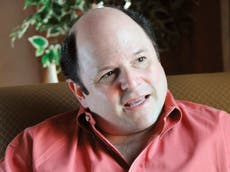Mea Culpa: A waterlogged cushion fails to block the sea lanes
John Rentoul on questions of style and usage in last week’s Independent


This was our headline on a defence story last week: “Melting Arctic ice caps bolstering China’s military, warns UK navy chief.” Maybe I’m too literal, but a bolster is a long cushion, which, because it can be used to prop up a person, has come to be used as a verb meaning to support or strengthen. In my mind’s eye Chinese admirals are being propped up by meltwater, which wouldn’t work, or by waterlogged cushions, which doesn’t seem terribly martial.
It is an interesting story, though: the navy is worried about the opening up of Arctic sea routes, meaning that Chinese ships will be able to nip round the top of Russia into our bit of the Atlantic. Perhaps “opening routes for China’s military” would have been better.
Major-scale unnecessariness: A large proportion of journalists’ time is spent thinking of synonyms for “big”. We used to use “major” a lot, but it was knocked out of us in the 1990s because it was the prime minister’s name. These days we sometimes use “large-scale”, but we really shouldn’t. In a “news in brief” item last week we said that the Northumbria Police had “launched a large-scale investigation” after two drugs deaths, “with officers carrying out a number of room searches with drugs dogs at student accommodation”.
We could have just said that the police “launched an investigation” and left it to the reader to judge whether searching some rooms with dogs amounted to something out of the ordinary.
Meanwhile, in our coverage of the US election, we reported on Joe Biden’s campaign in Pennsylvania, a state where Donald Trump’s 2016 promise to revive industry “won large-scale support in the rural stretches and small towns”. We may have been looking for a word that means “a lot of” that wasn’t “widespread”, but we didn’t need an adjective at all: “won support” would have told us all we needed to know.
Profs and boffins: In a follow-up to the Northumberland drugs story, we had the headline: “Suspected student drug deaths could be linked to club closures, expert warns.” Guy Keleny, my predecessor as writer of this column, had a rule against using the word “expert” in a headline. If we are relying on someone’s opinion as the main point of a news story, their expertise ought to be assumed.
Much better to try to give the reader some idea of why we think their view is relevant. In this case we were quoting Fiona Measham, a professor of criminology and a founder of a charity that runs a drug-testing service trying to reduce the risk of illegal drugs. A tabloid newspaper might have called her “prof”, but I think The Independent could have stretched to “criminology professor warns”.
The future’s not ours to see: I spotted “only time will tell” twice on the sports pages last week. Someone needs to write some code for our system that triggers an air raid siren whenever anyone tries to put those words into their keyboard.

Join our commenting forum
Join thought-provoking conversations, follow other Independent readers and see their replies
Comments